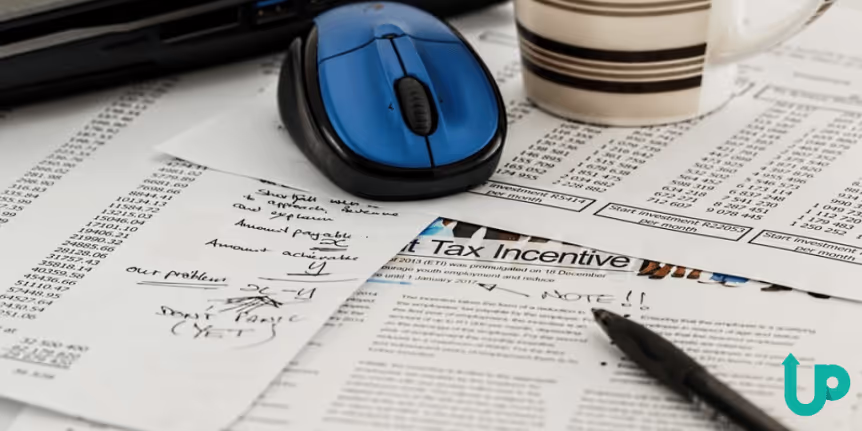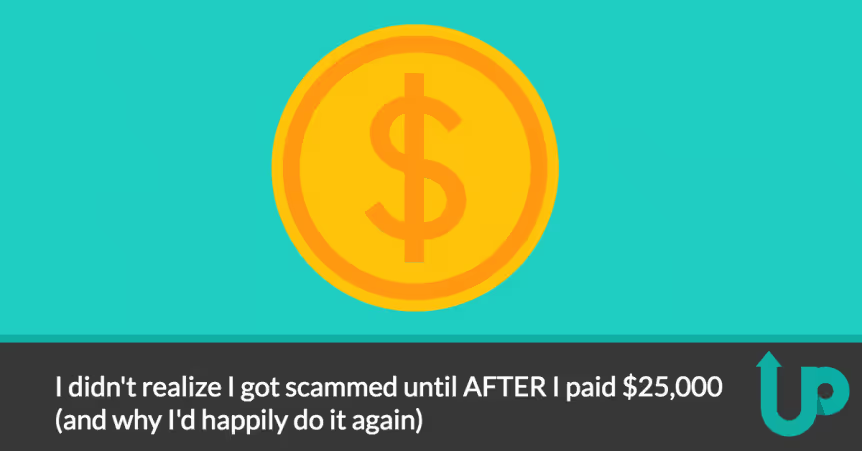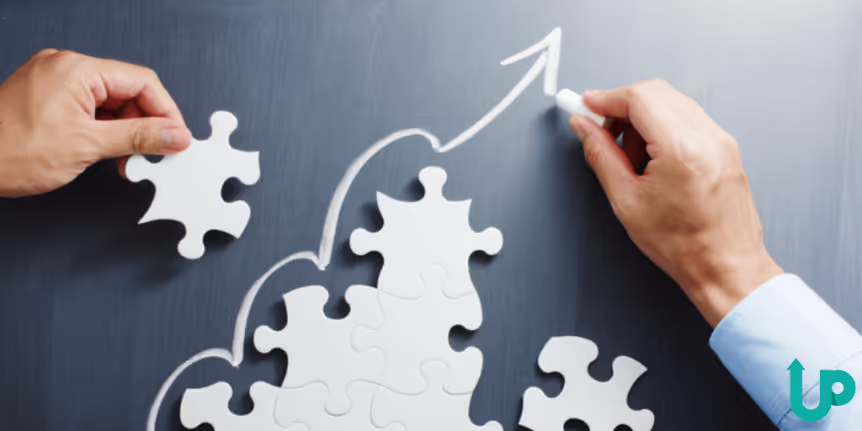In episode #18, Wilco shares why he had to let go of his return on investment focused mindset.
Links
Russell Brunson's Inner Circle Mastermind
Hey, hey, hey, everyone. It's me, Wilco de Kreij here, and today is actually a pretty awesome day. The sun is shining here in the Netherlands. It's actually starting to warm up, pretty warm for this time of year, and for one reason or another that just gives me energy, just fires me up, and it makes me happy. Yeah, pretty good day today, and today I wanted to talk to all of you about something that I think is pretty important actually, because this is something that I thought was a habit of mine that I had for years, and years, and years, and years until maybe a year ago or so, and I always believed it was a good thing, but looking back it actually held me back big time. In one way or another it is actually a good thing, but there's some kind of a balance there, right? So, what is this about?
For those of you who know me, you might know that I'm a really calculating guy, basically. Like I pretty much calculate everything in life. Well, not everything obviously, so don't tell my wife that, but I calculate quite a lot. Just a random example, recently I calculated up to the specific day how many days I was abroad over the last eight years, so for the last eight years, how many days I actually spent abroad. I believe it was, I don't even remember. I think it was around 31, 32%. Something like that. Just over 30% of the time I've been abroad because I love to travel. I did very longer trips, as well, like six months trips, so that adds the timing up quite a bit. Obviously there's like no logical reason for me to calculate that. There's no benefit, no upside, or anything like that. It's just a fun fact for me, and yet I spend time calculating it, and that's just to give you an indication of how much of a nerd I am calculating things.
In my business, I pretty much calculate everything, as well, right. So, either based on the data that I have, you know, seeing if someone worked or didn't work, but even ahead of time I'm sort of trying to calculate in my mind or even on Excel sheet where I sort of estimate by calculating what something's going to do for my business. Based on calculations, I make decisions on whether or not I should focus on something, right. Simply put, one major factor I look at pretty much everything in my business, and that's really what this podcast is about is ROI, return of investment.
So, me personally, I'm a very, very ROI focused guy, and I think that's because online we can basically track and measure everything, right, so if I run Facebook ads, I know exactly what my ROI is. If I send out an e-mail to my e-mail list, I know exactly what my ROI is. If I do a launch with affiliates, I know exactly what my ROI is. With all these things, I know exactly what the result is, right, and because of that, I sort of, over time, changed into the habit of basically only doing things that I could measure the ROI of. I just had to know what the ROI was, so I beforehand could sort of decide what are, you know, I thought it was, hey, this is going to give me a good ROI. Plus, I also knew that backwards, like looking back I could actually calculate and measure whether it was the right call, whether it was the right decision, so I can learn from that, right.
Over time, everything I did in my business sort of had to be ROI focused, right, and that's obviously a silly thing, right. Obviously it's important for various things, like Facebook ads, like a lot of the channels you need to have a good ROI, but it's ridiculous to think that we need to have an ROI on everything, right, because sometimes it just cannot be calculated. Sometimes it's just too vague, or you know there's no way to actually measure or calculate what the ROI is of a certain spend that you're doing, right. For that reason, for a long time, I sort of ignored everything that I couldn't calculate. I ignored everything that did not have an ROI or I knew that I couldn't track the ROI, and that kept me back for a long time, because if you think about it, there's so much stuff that you can do which wouldn't necessarily result in a clear ROI and a clear result, or at least not a measurable result, but it might actually, in the long term actually, be very worthwhile your time, or your energy, or your money, or your whatever it is about, right.
A clear example for me personally, is for example, the fact that I joined Russell Brunson's Inner Circle mastermind last year. It's a $25,000 mastermind, which for me, spending that on education, which that really is. It's all about learning from him, but also mingling myself with like minded entrepreneurs who are all doing massive things online. They're all building massive companies, but spending $25,000 on something like that, which is quote unquote just education, seems like a fair bit of money, quite a bit of money, and there was no way for me to really calculate an ROI on that. For a long time, I just ignored it, right. I just figured, "Look. I'm not going to do it." So last year, after being scammed, which is actually a pretty funny story. It's in one of the previous episodes on this very podcast, so I highly recommend you to listen to that. After being scammed, not by Russel Brunson obviously, but by someone with his name, let's put it like that. You'll have to listen to that episode for the full story, but after being scammed, I joined his Inner Circle. I wired $25,000, and like I said, there's no way I could put an ROI on that, but now, I'm like, I think it's like nine months ago since I joined, something like that, there is definitely a good ROI on that.
But beforehand, I would never have done it if I would still be in that ROI focused mindset, right. Same thing with for example, let's give you another example. Let's say, content marketing. I mean, we all know, like content marketing is the hoo-hoo, like you have to do content marketing, right, but if you do it yourself you can spend quite a bit of time, but in my case, because obviously there's a lot of stuff on my plate. It's not just the marketing side, but I'm basically helping out a lot on what our tools, what our virals should look like, what new features we're going to build, what connect IO tools we're building, how it all works, and really like I want to be in control or all these things.
We have roughly 15 people in the company, which takes up quite a bit of time. We have affiliates and marketing campaigns and all of that, so there's a lot of things I need to spend my time on, so I could not really devote myself to write content every, like a couple articles per week. It just wouldn't fit into my schedule, so the only way that I could do more content marketing, is if I would hire someone to do it, right. Once again, if you go looking for someone, there's no way you can measure a good ROI, because content marketing is going to take quite awhile to get ROI from that, and not only that, if I'm going to hire someone, there's time and training, like all these kind of delays before you would ever get a result. Even after you get a result, it's not as easy to track or easy to measure as for example Facebook ads.
For that reason, I never really started doing content marketing or at least not in a way that was scalable by hiring a team and making sure it was taken care of. It was only after I let go of that ROI mentality, it was only after I sort of accepted that you know not everything in my business should have an ROI, but sometimes it's just okay to go for your gut feeling, basically. Sometimes it's okay to not being able to measure something, it's okay to not know what the exact result is going to be, but just go for your gut feeling, and take a leap of faith, and just go for it, right. Just go, and like I said, I never really did that until roughly a year ago. Since that time, I've done various things that I would never have done beforehand because I had to spend quite a bit of money beforehand without knowing what the result is, and every single one of those things actually resulted, if I had to guess, in a positive ROI, and I say if I have to guess, because there's now clear one-on-one way to measure it, but my gut feeling says that I made the right call.
That's really what today's all about. If you are like me, if you are trying to calculate everything, if you're trying to do everything perfect forget about it. Like, don't always try to calculate everything. Don't always try to find excuses not to do something, which is sometimes if it feels right, if you think this is the right thing to do, even though you're not completely sure if it's going to have a good ROI, just go with the flow. Go for it. Obviously is there's like, you don't want to put everything on the line, like it has to be a calculated risk, right. I mean, I wouldn't spend all my money on one thing, but so it really depends on your situation. As long as it's a calculated risk, and sort of like it's not even as much calculated, but more like an acceptable risk. I think that would be the best way to describe it. Just go for it, and don't always require to have an ROI. I'm not sure, maybe I'm the only one who's having this problem. In that case, we'll there you have it. Now you know sort of what my problems are. Ever since I let that go, the ROI focused mindset, it helped me to not being held back like I was before.
That's if for today. I'm heading out. I have a couple more hours to crunch in some work, but then I'm heading out actually, so I will see you all, or listen to you all, or talk to you all in the next episode. Cheers. Bye-bye.
"Sometimes it's okay to not being able to measure something, it's okay to not know what the exact result is going to be, but just go for your gut feeling, and take a leap of faith, and just go for it."





.png)